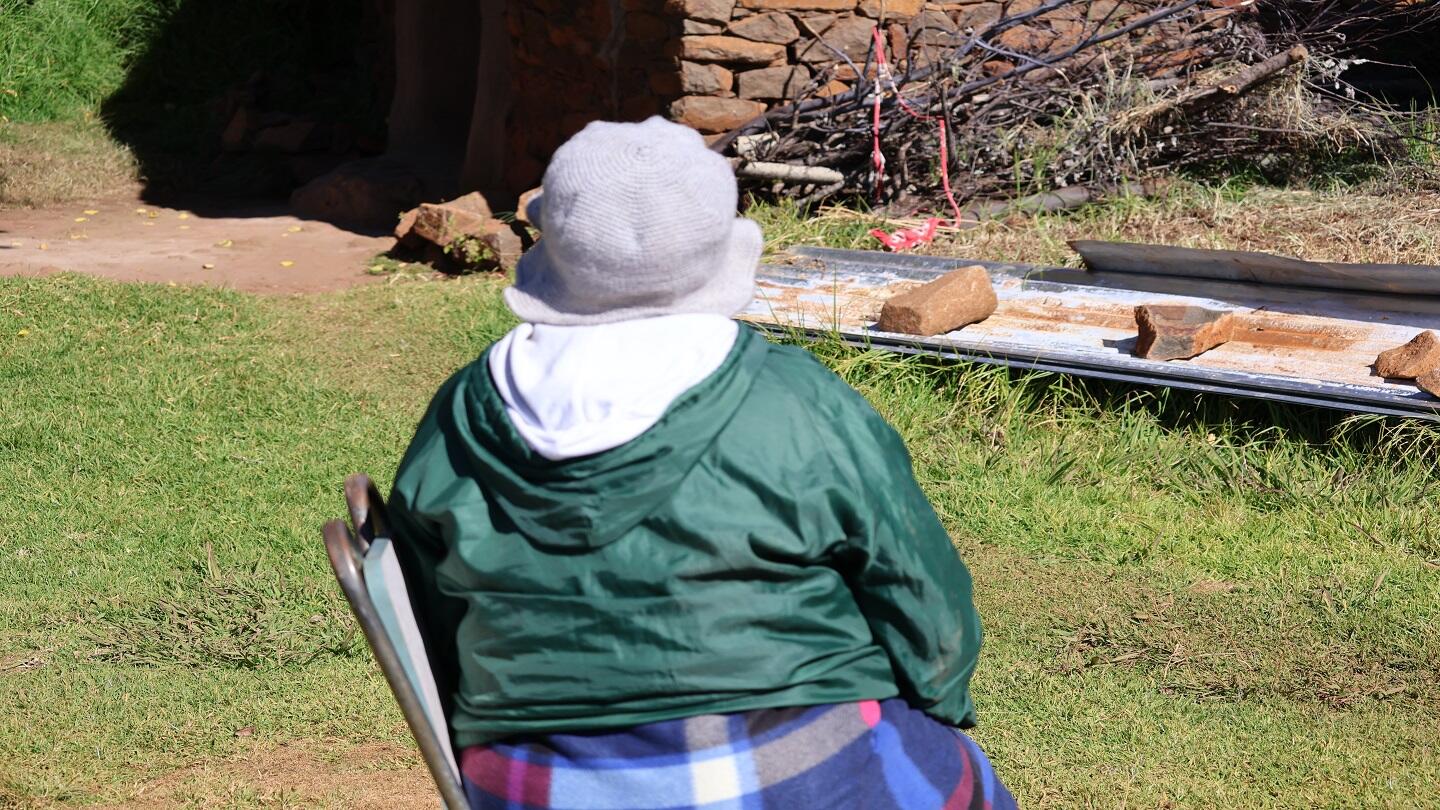In a small, quiet village in Lesotho lives a woman whose story echoes the silent suffering of many others—women whose lives have been forever changed during childbirth.
Her name is ‘Mampho (not her real name) and she is 51 years old. Time has stood still for her since 1999, the year she gave birth to a stillborn child and was left with an injury that has robbed her of her dignity, her livelihood, and her dreams.
It was her second pregnancy. The first child had also been stillborn. “I had thought the child would provide solace for me since I had lost the first one,” she recalls, her voice faltering, “but I lost this one too, and I was left in this condition, injured and no longer able to control my urine.”
For two days, she laboured in pain at a small private clinic before being rushed to Roma Hospital and eventually referred to Queen Elizabeth II Hospital in Maseru. By the time she delivered late that night, it was too late—her baby had died, and her own body had suffered irreparable damage.
She had developed an obstetric fistula.
An obstetric fistula is one of the most devastating childbirth injuries, caused by prolonged, obstructed labour without timely medical intervention. It creates a hole between the birth canal and the bladder and/or rectum, resulting in incontinence. Women with fistula often endure, social stigma and isolation, stripped of their health, their self-esteem, and their place in society. According to UNFPA, the United Nations Sexual and Reproductive Health agency, about 90% of women who suffer from fistula also lose their babies, as in ‘Mampho’s case.
UNFPA leads the global Campaign to End Fistula, providing strategic support, medical supplies, technical training for healthcare professionals, and funding for prevention, treatment, and reintegration programmes. In Lesotho, UNFPA works to strengthen sexual and reproductive health systems to ensure timely, high-quality emergency obstetric care—so that women like ‘Mampho are not left behind.
Each year, on 23 May, UNFPA marks the International Day to End Obstetric Fistula to galvanize action, commitment, and global solidarity. This day raises awareness about the devastating impact of obstetric fistula and promotes efforts toward prevention, treatment, and the reintegration of affected women into society.
This year’s theme, “Her Health, Her Right – Shaping a Future Without Fistula,” deeply resonates with the plight of women like ‘Mampho.
Since the incident 26 years ago, ‘Mampho has forgotten what it means to live a normal life. She has not had a dry day. Her injury has left her constantly leaking urine. She lost not just her baby, but her livelihood. Once employed as a domestic worker, she no longer believes anyone would hire her in her condition. She now survives by selling snacks from her home, but in a remote village with few customers, that income is barely enough to live on.
She has travelled to Bloemfontein four times in desperate attempts to get the condition repaired. Each time, the surgery was postponed. “I was always told to come back next time, until I gave up. I didn’t have money for the travel and food.”
To manage her condition, ‘Mampho relies on disposable napkins when she can afford them. “When I travel, I double them,” she says. Most of the time, however, she uses old cloths, which cause severe friction and pain. “You can’t imagine the pain caused by the friction. Sometimes I just lie down, legs wide open, after smearing myself with methylated spirits. It stings so badly, but I do it anyway, hoping it will dry up and heal.”
Pointing at the all-purpose one roundavel she lives in, she adds, “You can also imagine during the winter like now, I sometimes wake up to a soaked bed, I have to wash almost every day.”
She ties a shawl around her waist every day, regardless of whether it’s the freezing winter or blazing summer, to protect against visible leaks. She also never leaves home without her backpack—stuffed with the old cloths for changing. This has earned her a cruel nickname in the village: “‘Mamokotla” – “Mother of Bag.”
“When I’m sitting with people, and someone says they smell urine, I know it’s me. But I just sit there, pretend I don’t hear, and wait until everyone else leaves so I can go last.”
Hope for Healing
Recently, the Nazareth Health Centre in Maseru district has taken note of ‘Mampho’s plight and is making arrangements to refer her to Queen ‘Mamohato Memorial Hospital for surgical repair. This development brings a glimmer of hope to Mampho.
For her, the chance to be repaired would mean more than healing. It would mean being seen again—as a woman, a human being, and a member of her community.
“I don’t even remember what it feels like to be dry, to walk freely, or sit among people without fear,” she says quietly. “If they fix me, maybe I can start living again.”
Until this happens, she will keep wearing her shawl. She will carry her bag. And she will wait—for relief and for a life she has for the past 26 years not been able to live.


